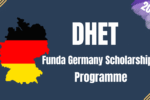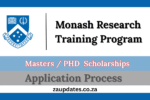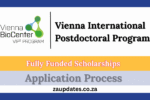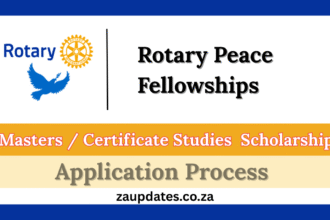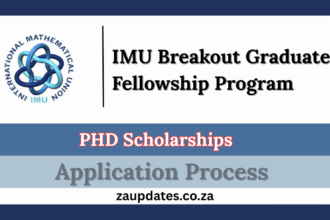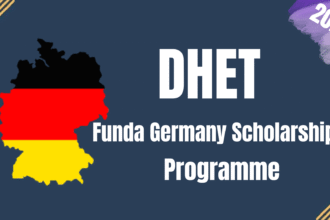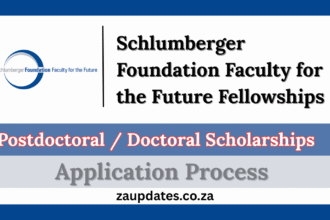Human Frontier Science Program Postdoctoral Fellowships For 2026. If you plan to do postdoctoral research abroad, then you should read this article carefully. The purpose of this article is to provide in depth information about the Human Frontier Science Program Postdoctoral Fellowship, its benefits, and the steps involved in applying for the fellowships.
The Human Frontier Science Program Postdoctoral Fellowships 2026 are fully funded scholarships available to international students. The HFSP Fellowships will provide a living allowance, a research allowance, and an allowance for travel. Fellows may also qualify for a child allowance, a parental leave allowance, or a relocation allowance, depending on their specific situation.
In the life sciences, the HFSP fellowship program promotes proposals that represent frontier, potentially transformative research. The submission of high-risk projects is particularly encouraged. The projects should be interdisciplinary in nature and use novel approaches and techniques to challenge existing paradigms. According to scientific principles, they should address an important problem or barrier to progress.
Postdoctoral fellowships with the HFSP enable early-career scientists to broaden their research skills while studying in a different country while improving their research skills.
The following fellowships are available:
- Fellowships for the Long-Term (LTF) are available to candidates with a PhD in a biological discipline who plan to broaden their expertise by proposing a project in the life sciences that differs significantly from their previous work.
- The Cross-Disciplinary Fellowship (CDF) is available to applicants holding a PhD in a field outside the life sciences (including physics, chemistry, mathematics, engineering, and computer science).
Scholarship Summary
- Level of Study: Postdoctoral
- Institution(s): Human Frontier Science Program (HFSP)
- Study Location: Refer to the list of host countries provided below
- Focus Areas:
- Life Sciences
- Physics
- Chemistry
- Mathematics
- Engineering
- Computer Sciences
Important Deadlines
| Stage | Deadline |
|---|---|
| Initiation of Letter of Intent | By 1:00 PM (Eastern Time, US) – May 07, 2026 |
| Registration Portal Opens | April 2026 |
| Submission of Letter of Intent | By 1:00 PM (Eastern Time, US) – May 15, 2026 |
| Notification of Selection for Full Proposal | Between mid-August and end of August 2026 |
| Submission of Full Proposals (for selected applicants) | By 1:00 PM (Eastern Time, US) – September 25, 2026 (via ProposalCentral) |
List of Host Countries
The following countries are considered host nations:
- Australia
- Austria
- Belgium
- Bulgaria
- Canada
- Croatia
- Cyprus (EU region only)
- Czech Republic
- Denmark
- Estonia
- Finland
- France
- Germany
- Greece
- Hungary
- India
- Republic of Ireland
- Israel
- Italy
- Japan
- Republic of Korea (South Korea)
- Latvia
- Lithuania
- Luxembourg
- Malta
- Netherlands
- New Zealand
- Poland
- Portugal
- Romania
- Singapore
- Slovakia
- Slovenia
- Spain
- Sweden
- Switzerland
- United Kingdom
- United States of America
Coverage of scholarships
There will be a living allowance and a research and travel allowance provided as part of the Human Frontier Science Program Postdoctoral Fellowships. There are also circumstances in which fellows may qualify for a child allowance, a parental leave allowance, and a relocation allowance depending on their individual circumstances.
Eligibility Criteria for HFSP Postdoctoral Fellowships
To be considered for the Human Frontier Science Program (HFSP) Postdoctoral Fellowships, candidates must meet the following eligibility requirements:
- Language Requirement: All application materials and submitted papers must be in English.
- Eligible Nationalities: Applicants from all countries worldwide are eligible to apply.
- International Research Requirement: Applicants must propose a research project to be carried out in a country different from the one where they completed their Ph.D. or conducted their initial postdoctoral research.
- For institutions that are international or extraterritorial in nature such as EMBL, ICPT, or ICGEB the host country is determined based on the physical location of the laboratory.
- Academic Qualifications:
- A Ph.D. or equivalent doctoral degree in a research discipline is required.
- This degree must be officially awarded before the fellowship begins, though it does not need to be awarded at the time of application.
- Acceptable degrees include research-based qualifications such as a research-focused MD or medical Ph.D., provided the candidate has substantial research experience.
- Publication Requirement:
- Applicants must have authored at least one full-length, original research article as the lead author.
- This article must be published, accepted for publication, or available on a recognized preprint server in an international peer-reviewed journal.
- Only English-language publications are considered.
- Review articles, patents, and other non-research-based publications are not eligible.
- Document Submission:
- Applicants are required to upload electronic copies of their lead-author publications during the application process.
- Post-submission uploads are not permitted; all supporting documentation must be included at the time of submission.
How to Apply for the Human Frontier Science Program (HFSP) Postdoctoral Fellowships
To apply for the Human Frontier Science Program (HFSP) Postdoctoral Fellowships, follow the step-by-step instructions outlined below:
Step 1: Submit a Letter of Intent (Deadline: May 7, 2026)
Applicants are required to submit a Letter of Intent (LOI) as the first step in the application process. The LOI must be submitted online through the HFSP portal [click here].
The Letter of Intent should include the following components:
- Title of the Proposal
- Keywords relevant to the proposed research project
- A brief summary of the research plan (this may serve as the abstract in the full application if shortlisted)
- Personal and contact information
- Curriculum Vitae (CV)
- Field and title of Ph.D.
- Details of the host supervisor and host institution
- Disclosure of prior collaborations or joint publications with the host supervisor, if applicable
- Confirmation from the host supervisor indicating awareness of and support for the application
- A preliminary list of publications, which can be updated later during the application process
Step 2: Peer Review of the Letter of Intent
Once submitted, the LOIs are reviewed through a peer-review process. Applicants will be notified of the review results as soon as possible. Only shortlisted candidates will be invited to proceed to the next stage.
Step 3: Submit Full Application (Deadline: September 25, 2026)
Applicants who are selected based on the LOI stage will be contacted directly by HFSP and invited to submit a full application.
The full application must include the following elements:
- Summary of previous research work (same as submitted in the LOI)
- Abstract of the proposed research (identical to the summary in the LOI)
- A detailed description of the proposed research project
- Explanation of how the proposed research differs significantly from the applicant’s prior work
- Explanation of why the proposed research is considered frontier science
- Justification of why the selected host laboratory is appropriate for the proposed research
- Explanation of how the applicant will benefit from working in the host lab (e.g., access to specialized infrastructure, advanced methodologies, mentoring opportunities, etc.)
- Updated list of publications
- Two letters of recommendation from referees
- Letter of support from the host supervisor, which should include:
- How the research direction represents a new path for the host lab
- Why the project marks a departure from the applicant’s past research
- How the lab aligns with HFSP’s mission to support emerging talent in frontier science
- A clear mentorship and development plan for the applicant
Additionally, applicants must upload PDF copies of their lead-author publications as part of the full application.
FAQs About
Who is eligible to apply for the HFSP Postdoctoral Fellowships?
Applicants from all countries are eligible. Candidates must have a Ph.D. or equivalent doctoral degree, at least one lead-author research publication in English, and propose a research project in a country different from where they completed their Ph.D. or current postdoc. Applicants must also meet HFSP’s publication and documentation requirements at the time of application.
What financial support does the HFSP Postdoctoral Fellowship provide?
The HFSP Postdoctoral Fellowship offers a living allowance, research allowance, and travel allowance. Depending on personal circumstances, fellows may also qualify for additional support such as a child allowance, parental leave allowance, and relocation allowance to ease international transitions and support family needs.
What types of research does HFSP fund?
HFSP supports interdisciplinary and frontier research in the life sciences that uses innovative techniques to address fundamental scientific challenges. The program encourages high-risk, high-reward projects that bridge disciplines such as physics, chemistry, mathematics, engineering, and computer science especially for those applying through the Cross-Disciplinary Fellowship (CDF) track.
Conclusion
If you plan to pursue postdoctoral research abroad, this fellowship could be a career-defining opportunity. The HFSP Postdoctoral Fellowships offer comprehensive funding and international exposure to early-career scientists committed to groundbreaking, interdisciplinary research. By following the outlined application steps and meeting eligibility criteria, you can significantly advance your scientific career on a global platform.



